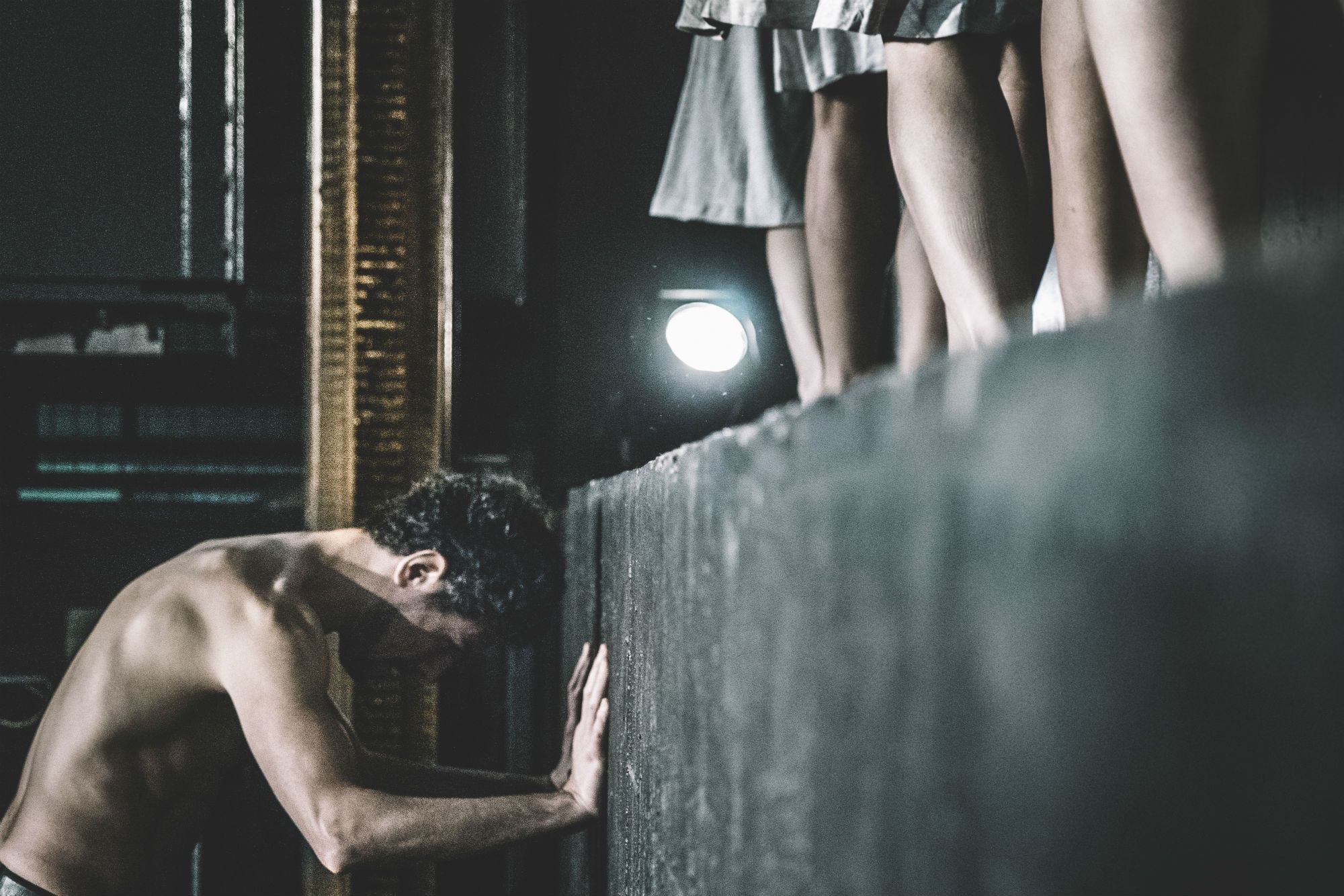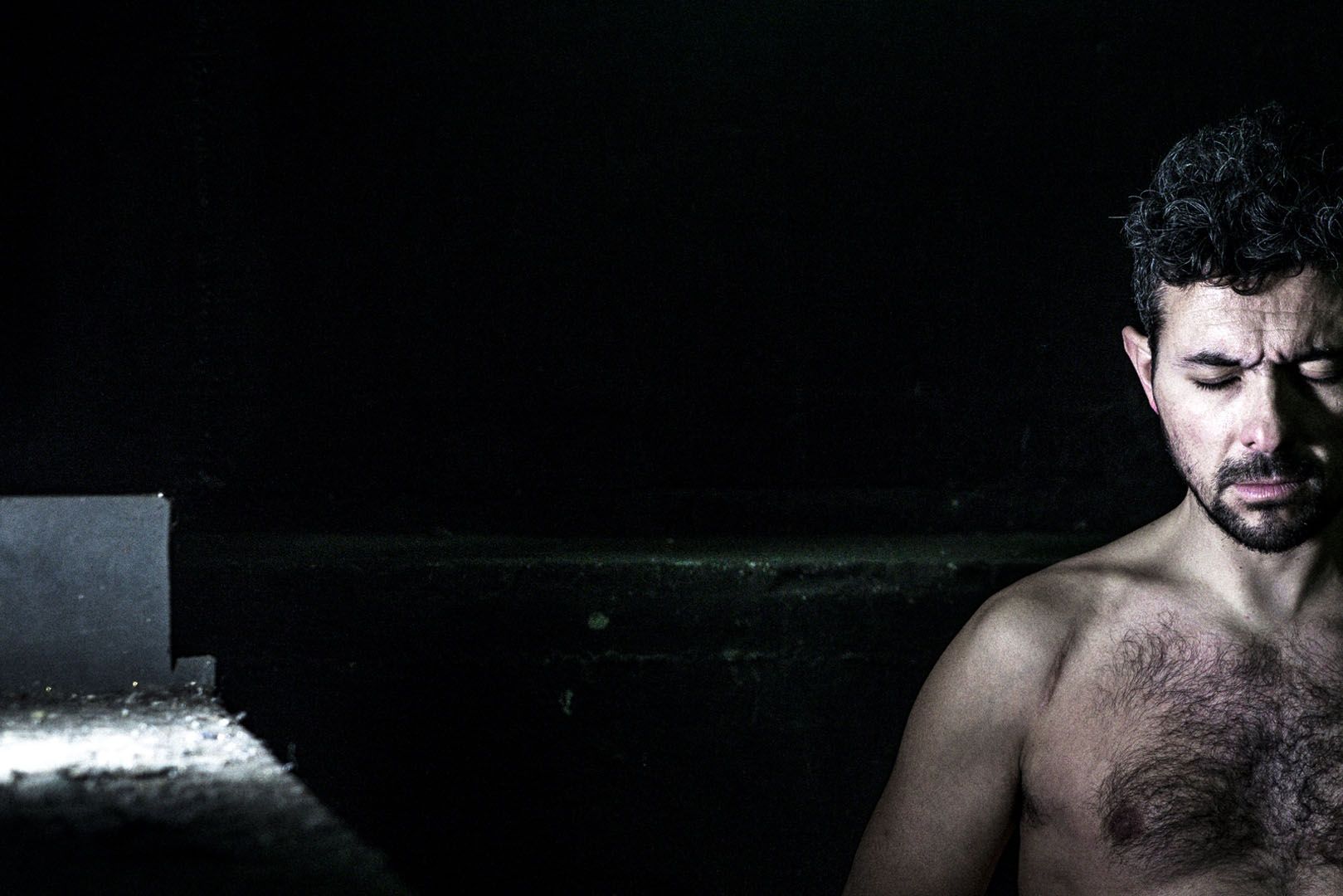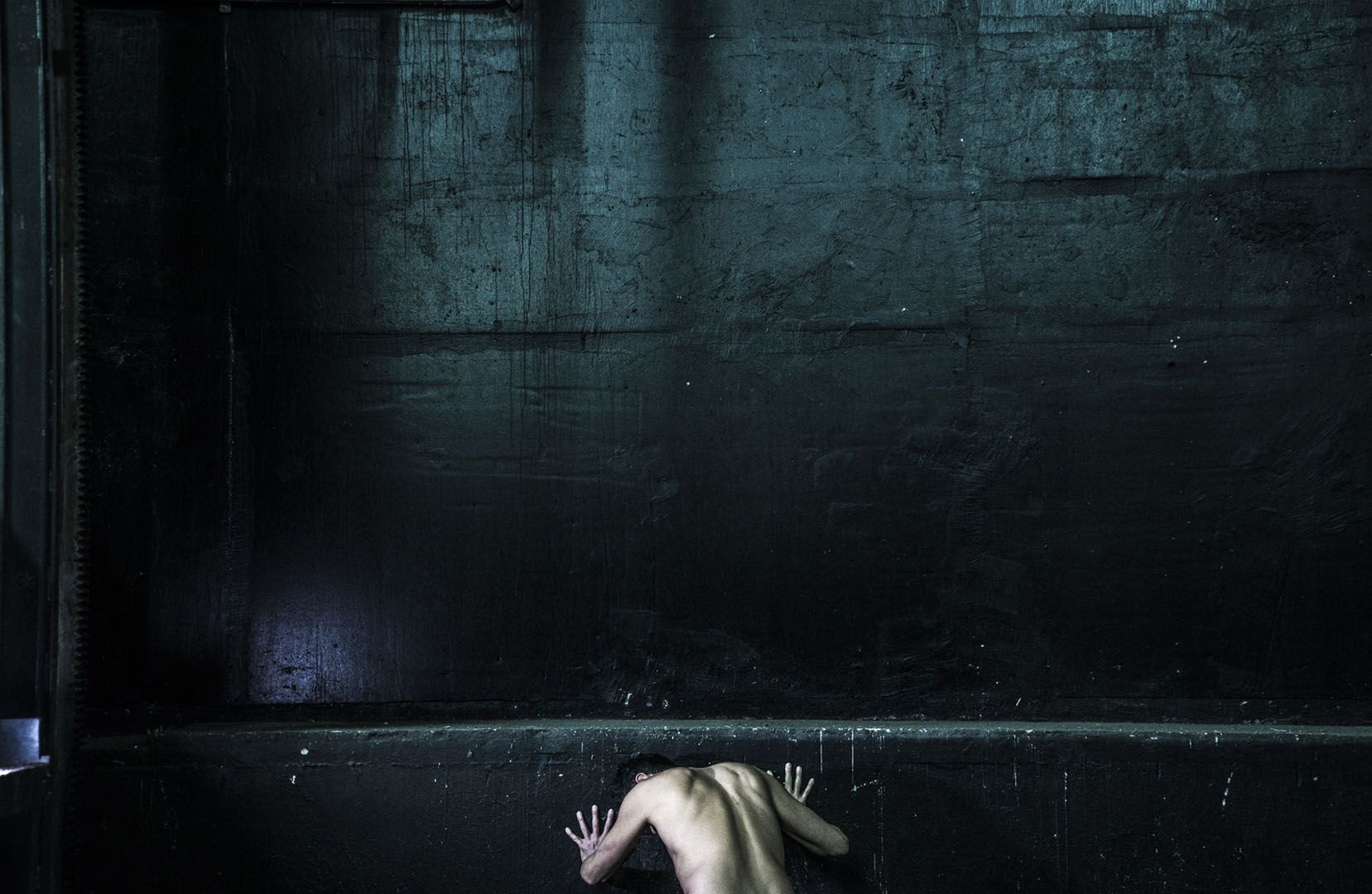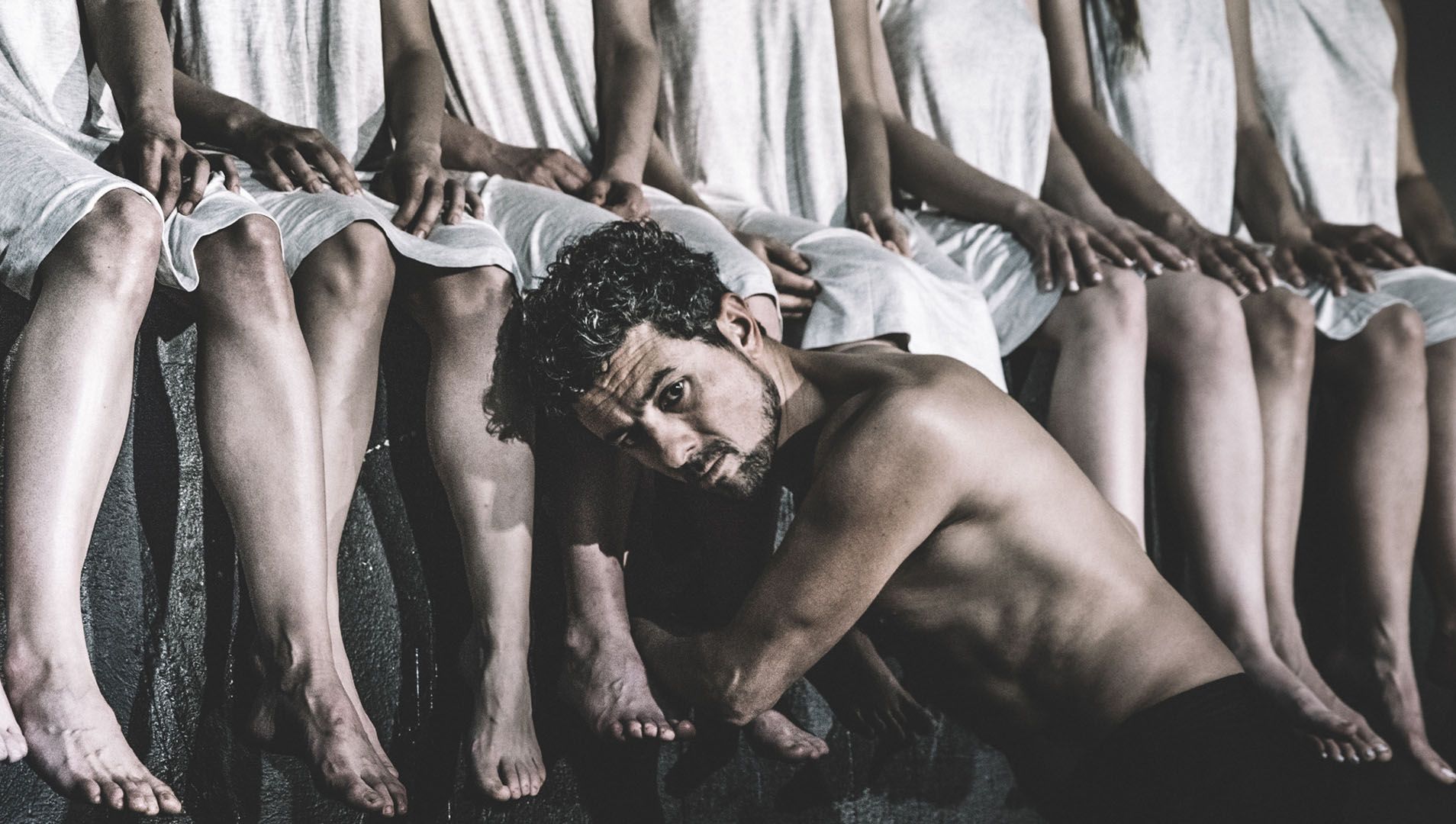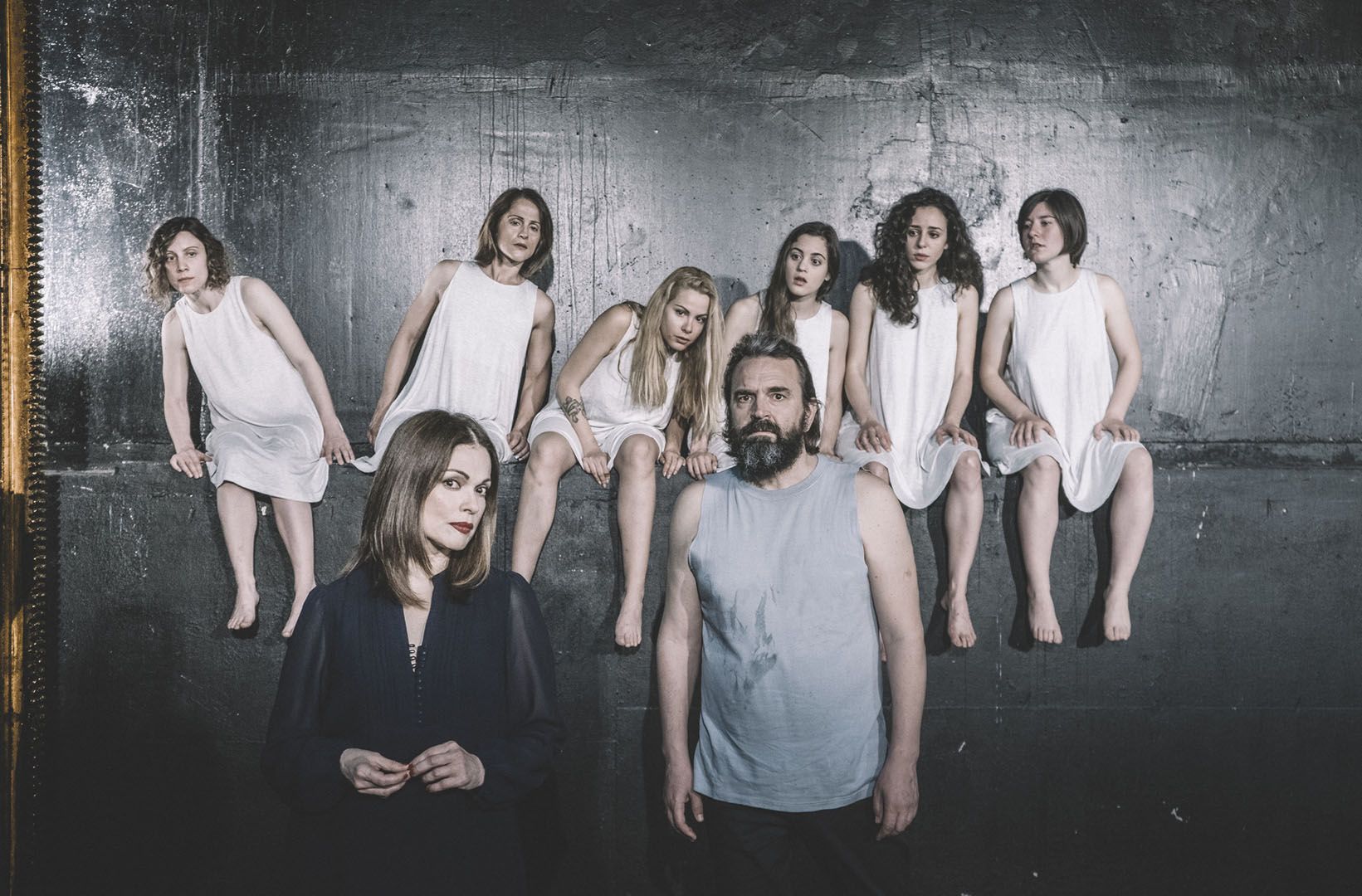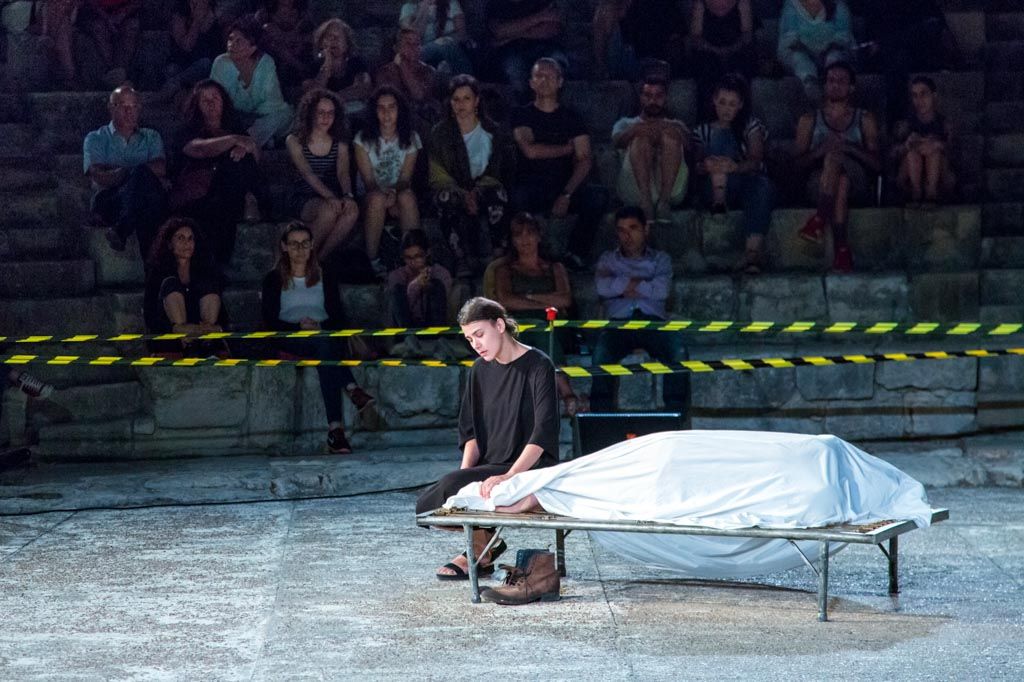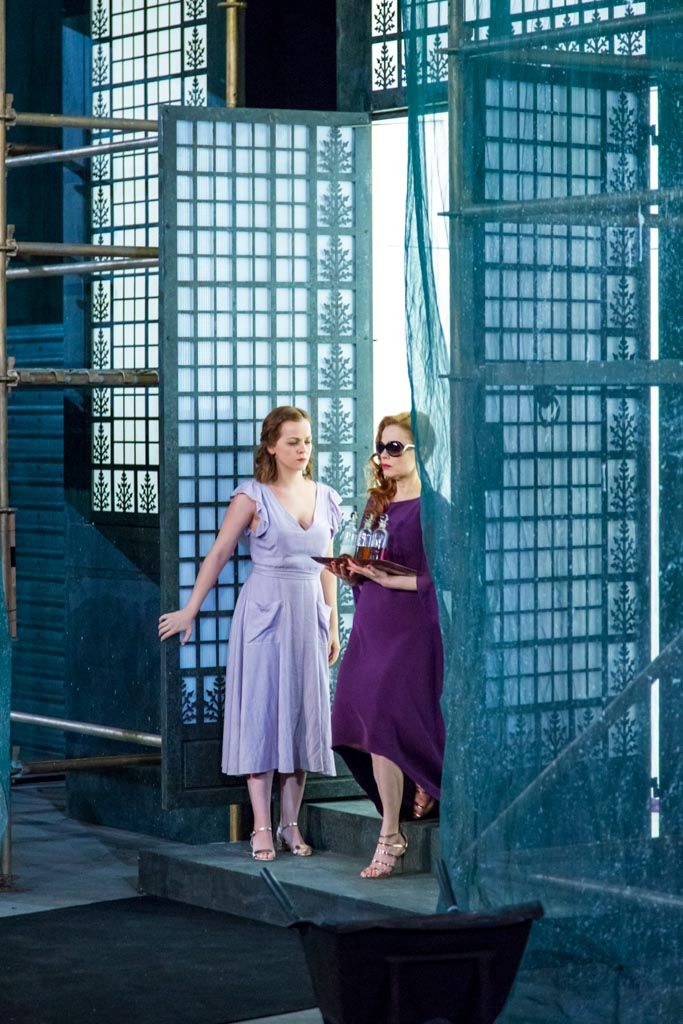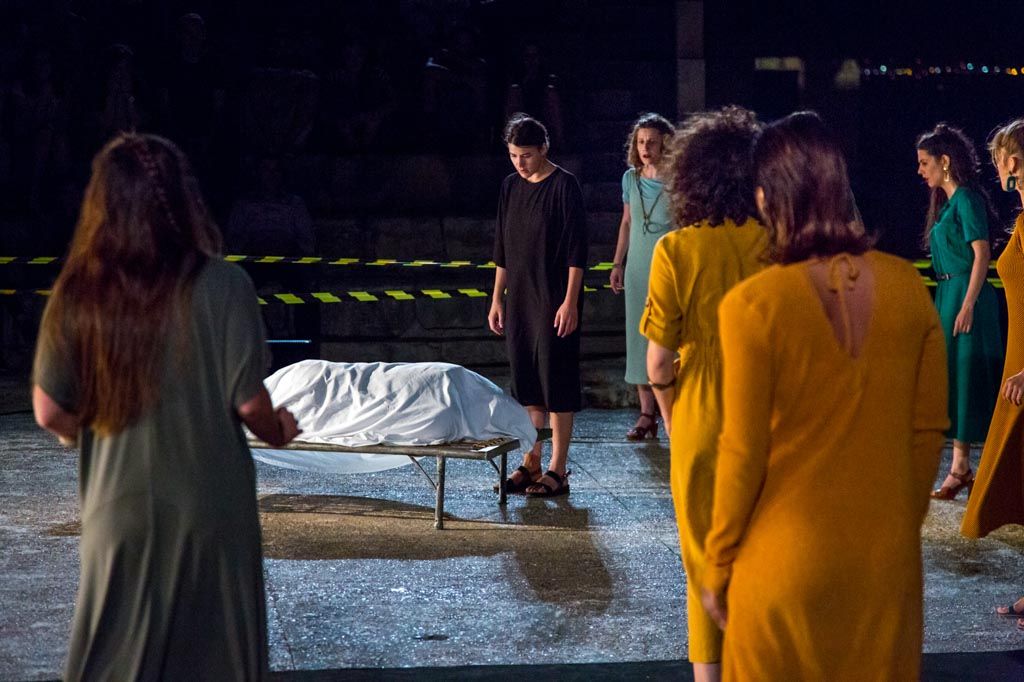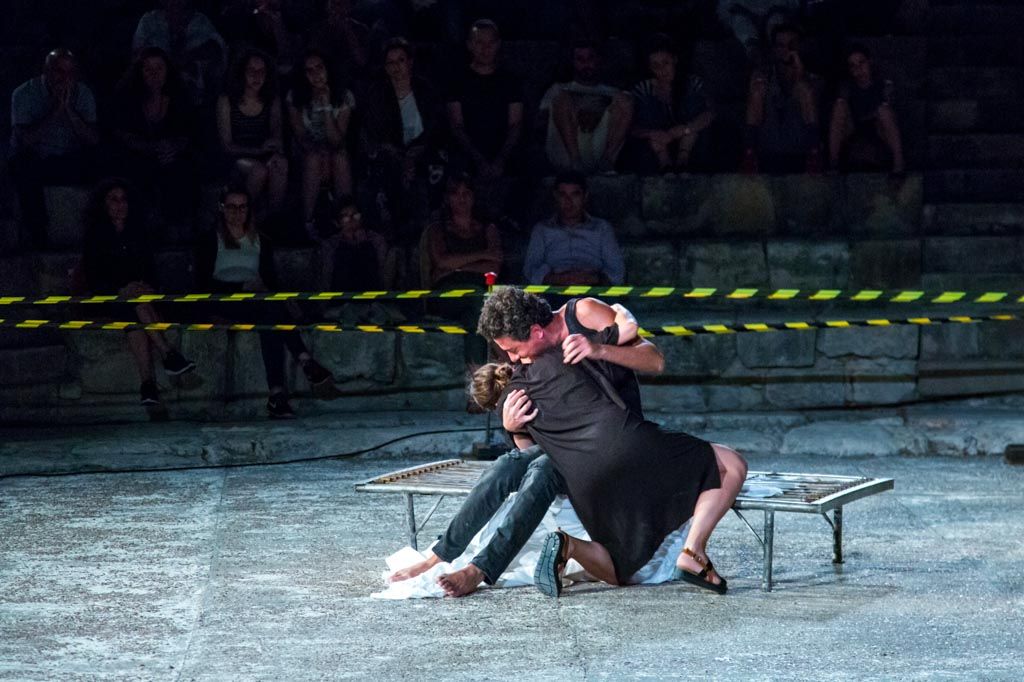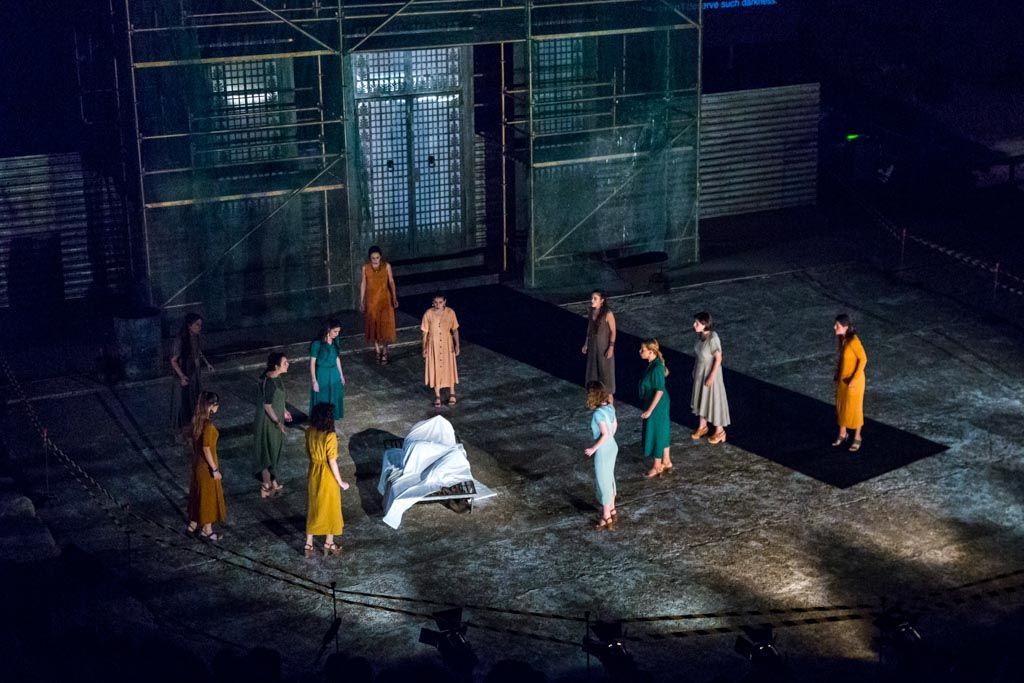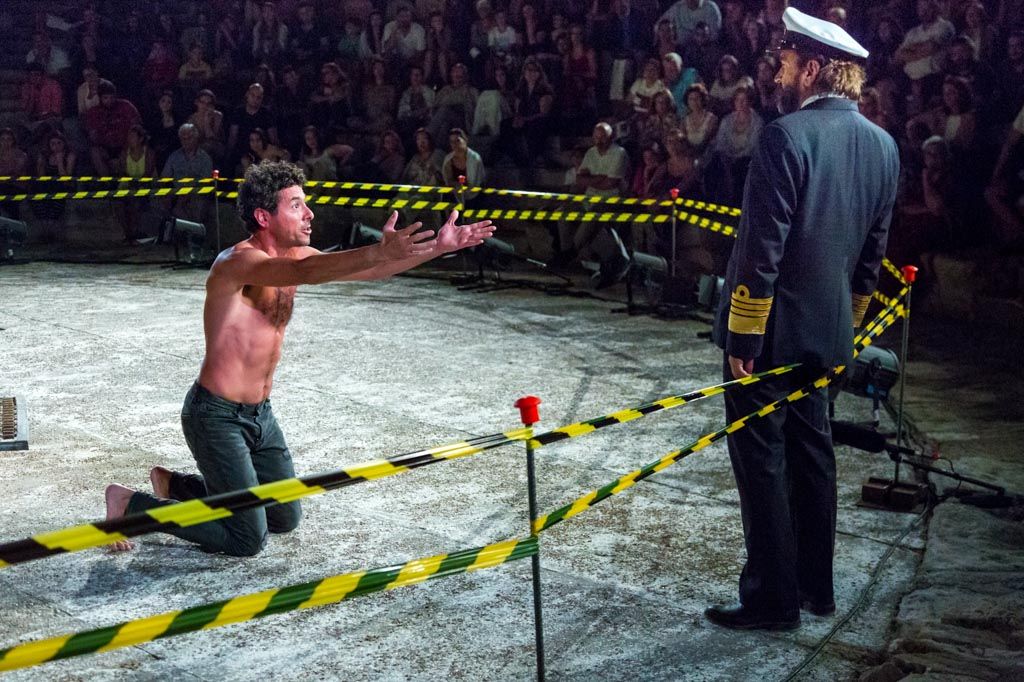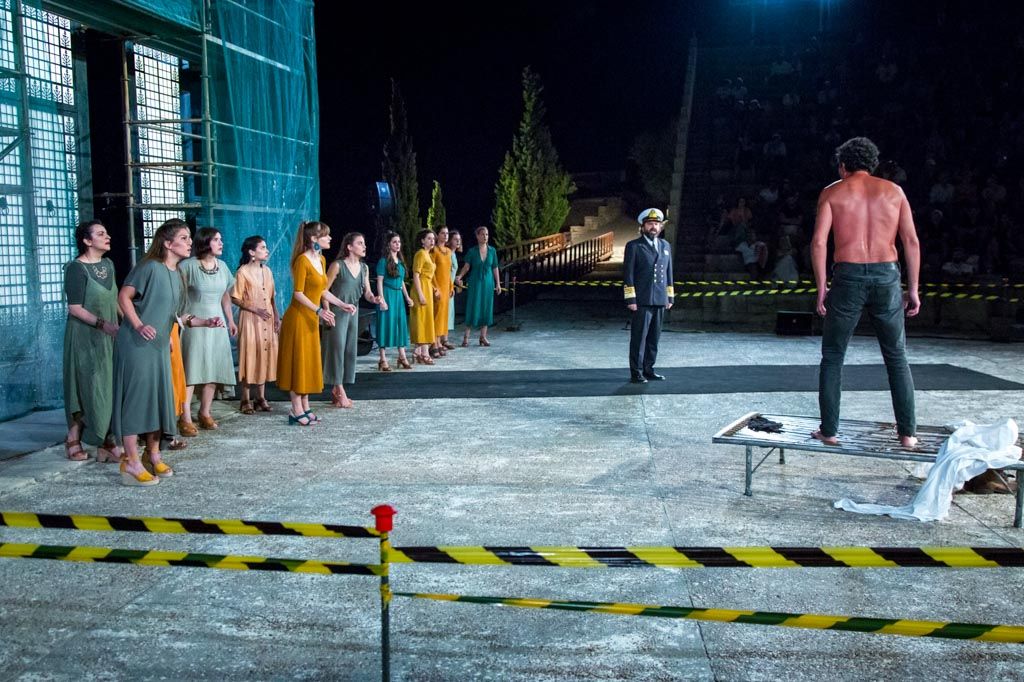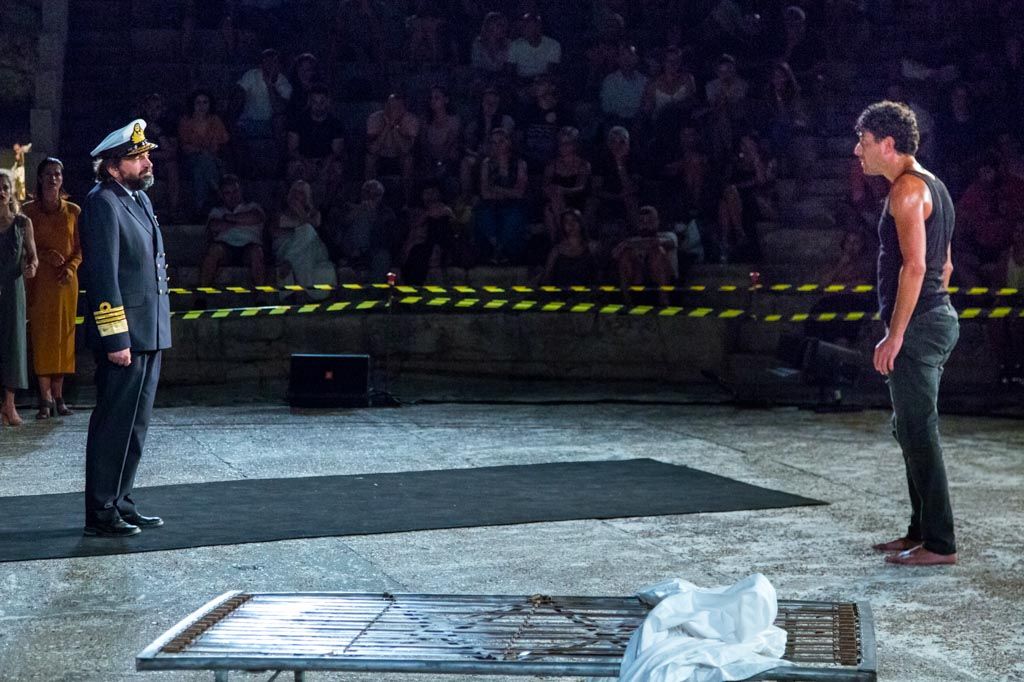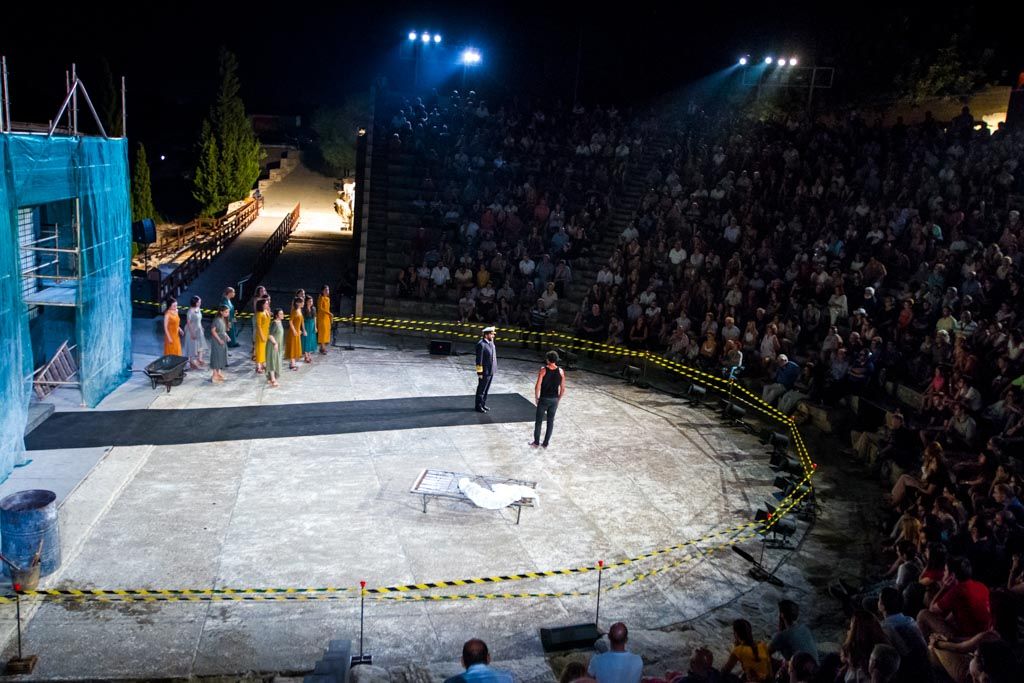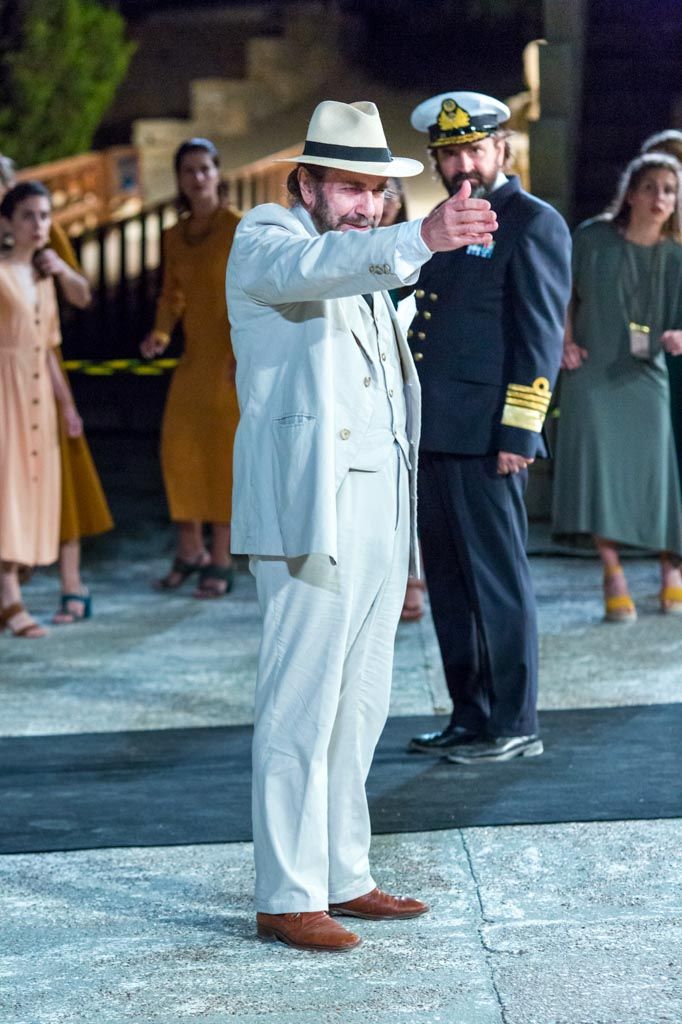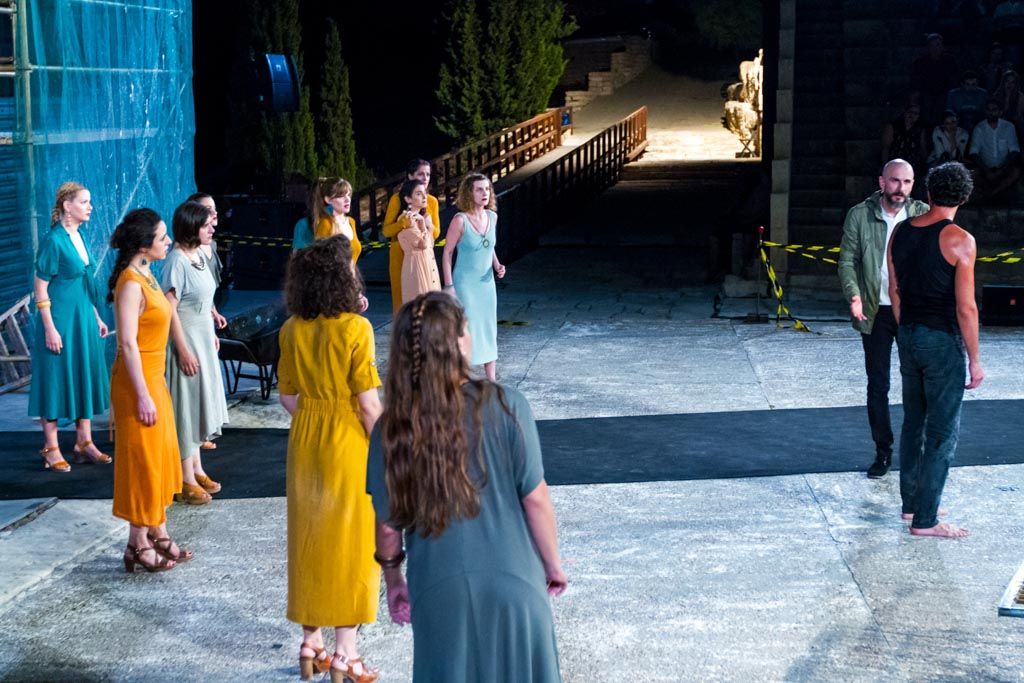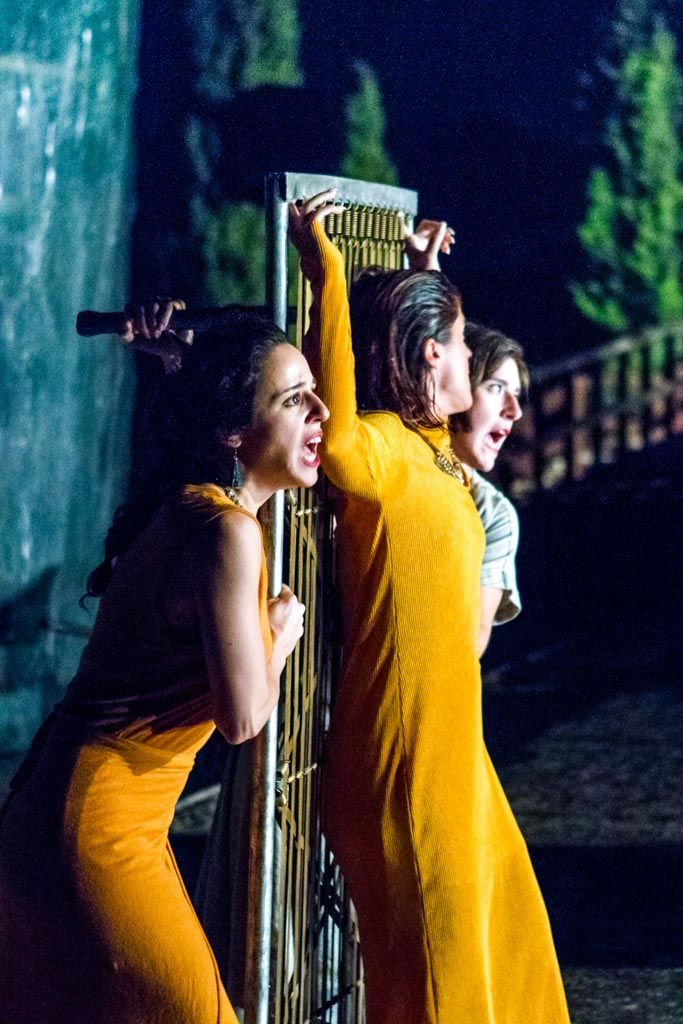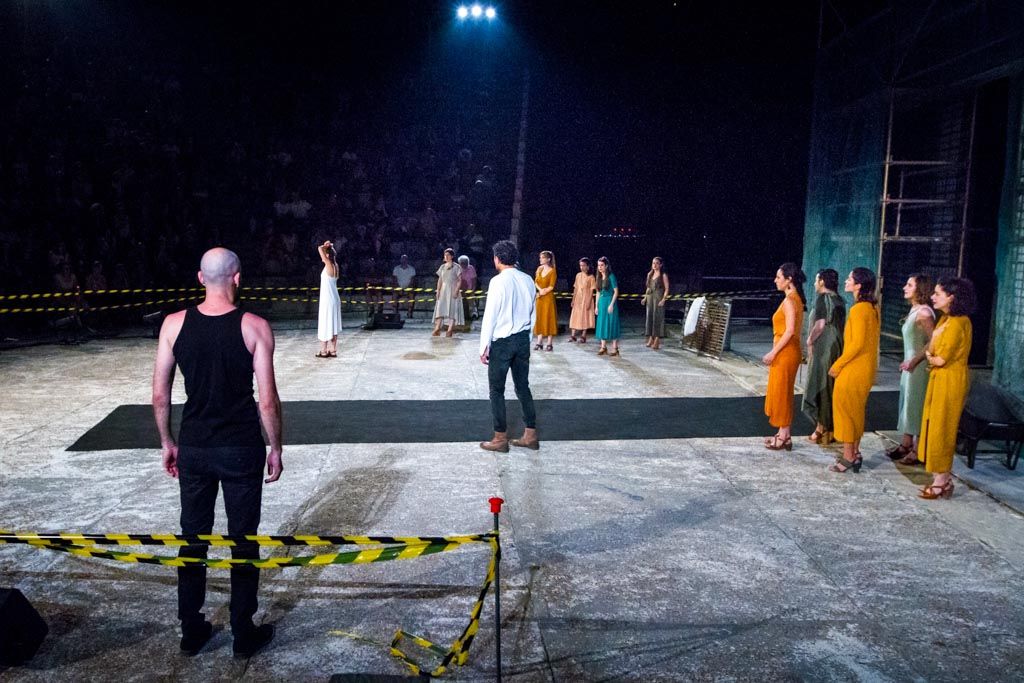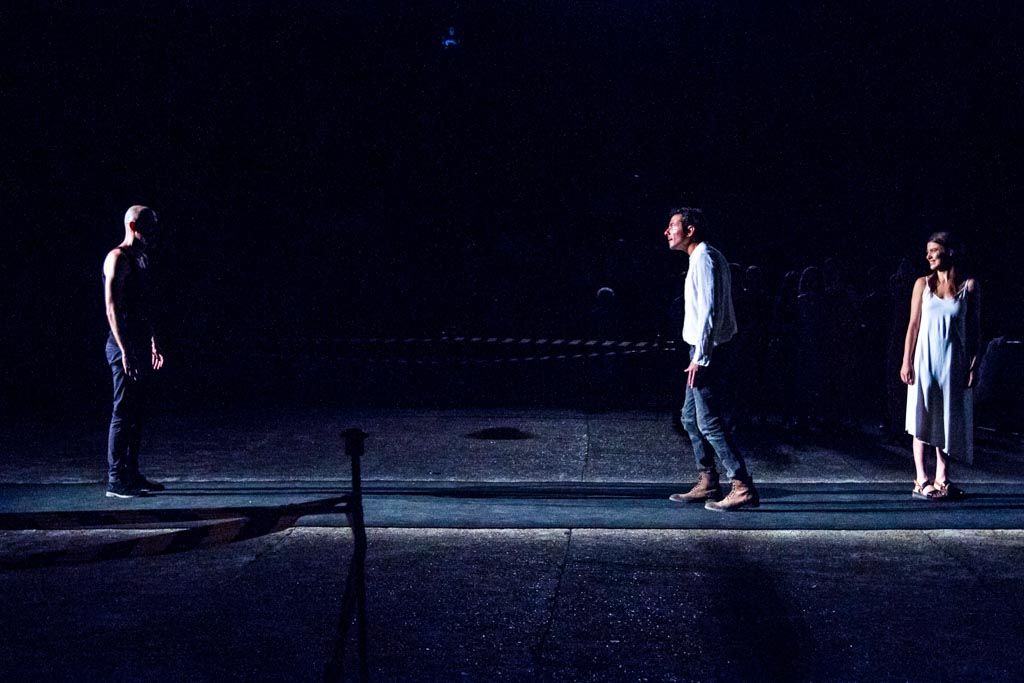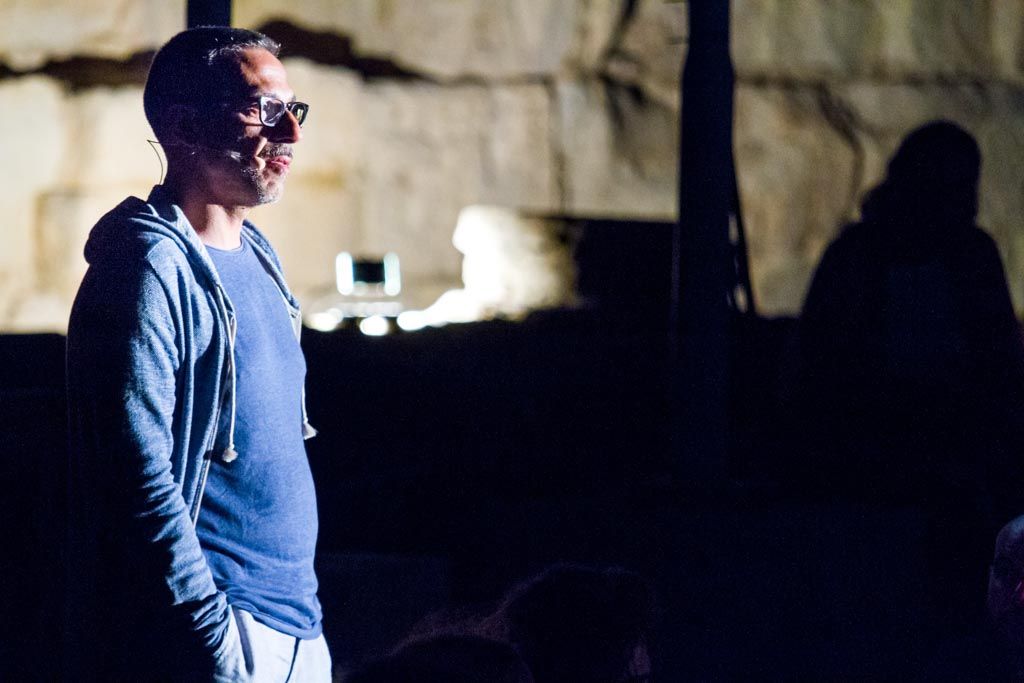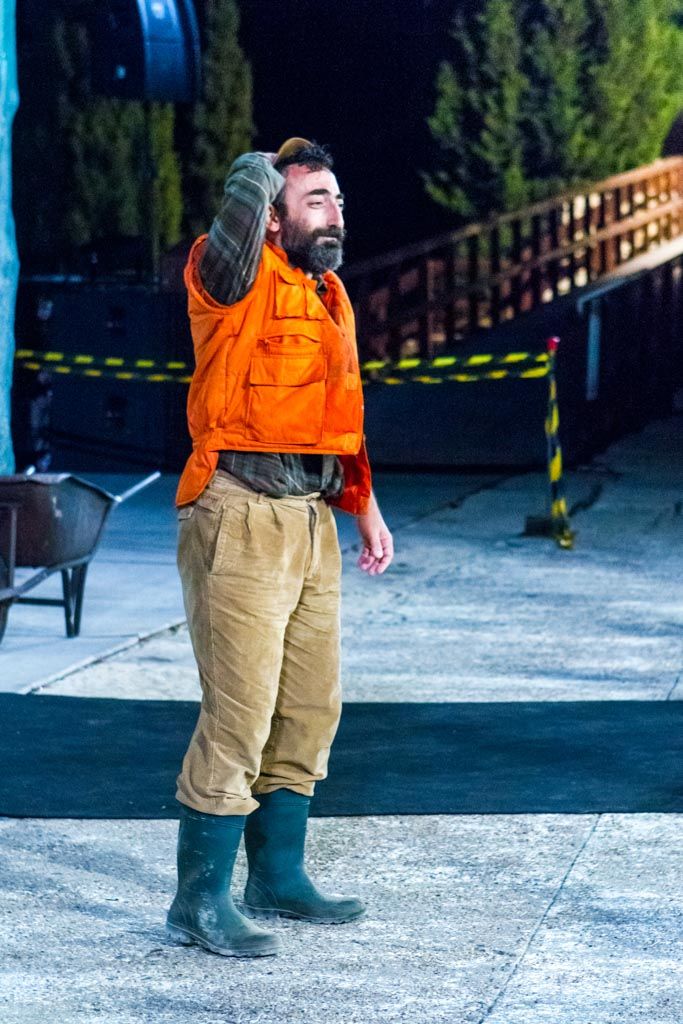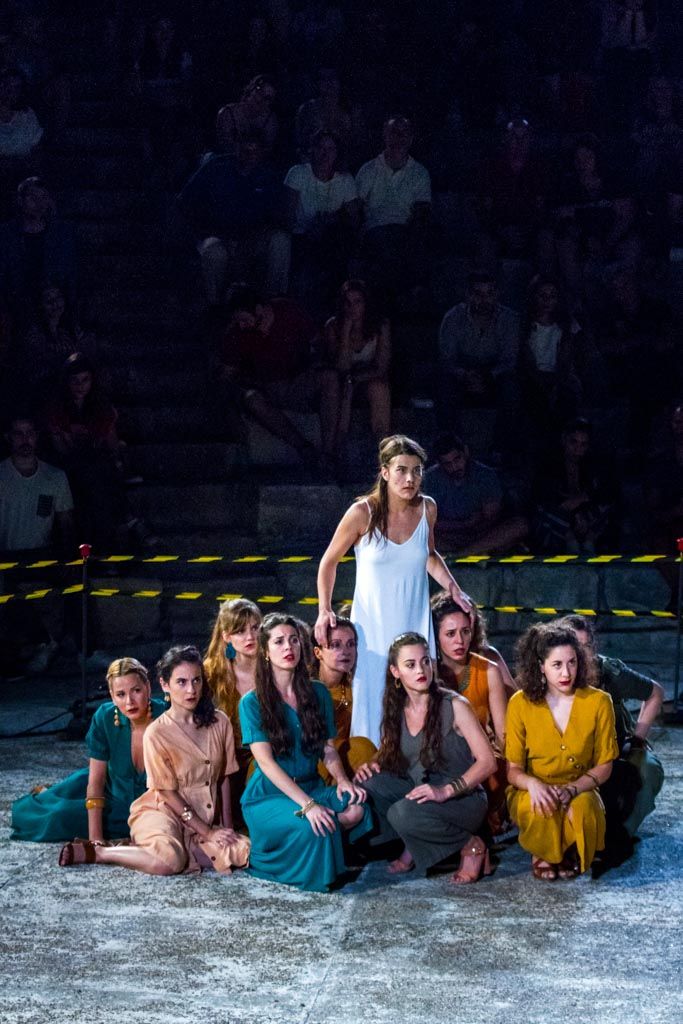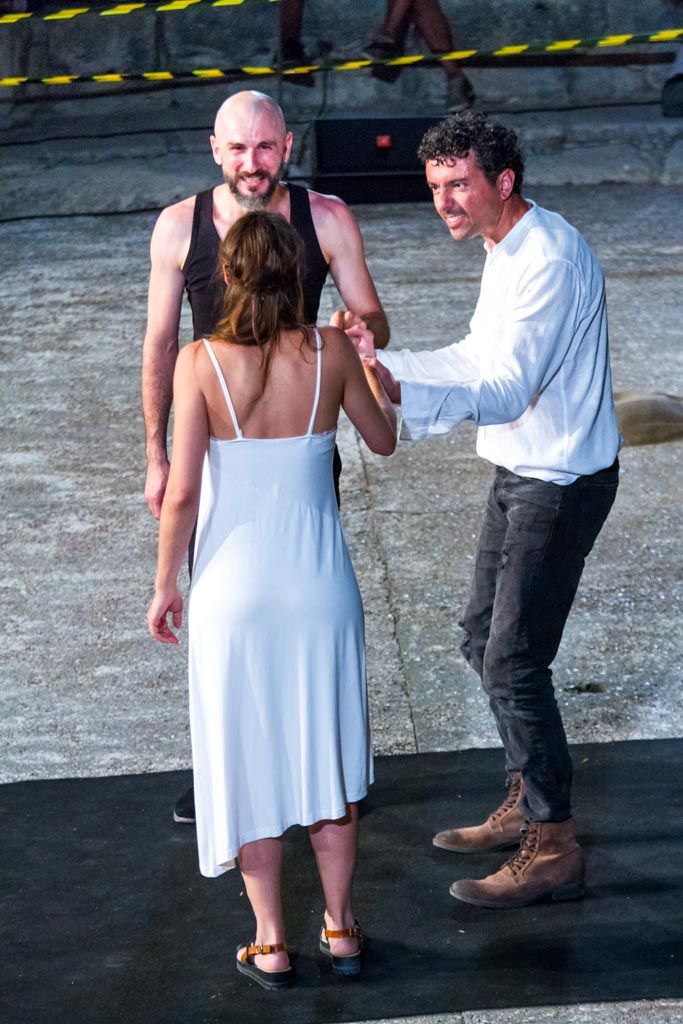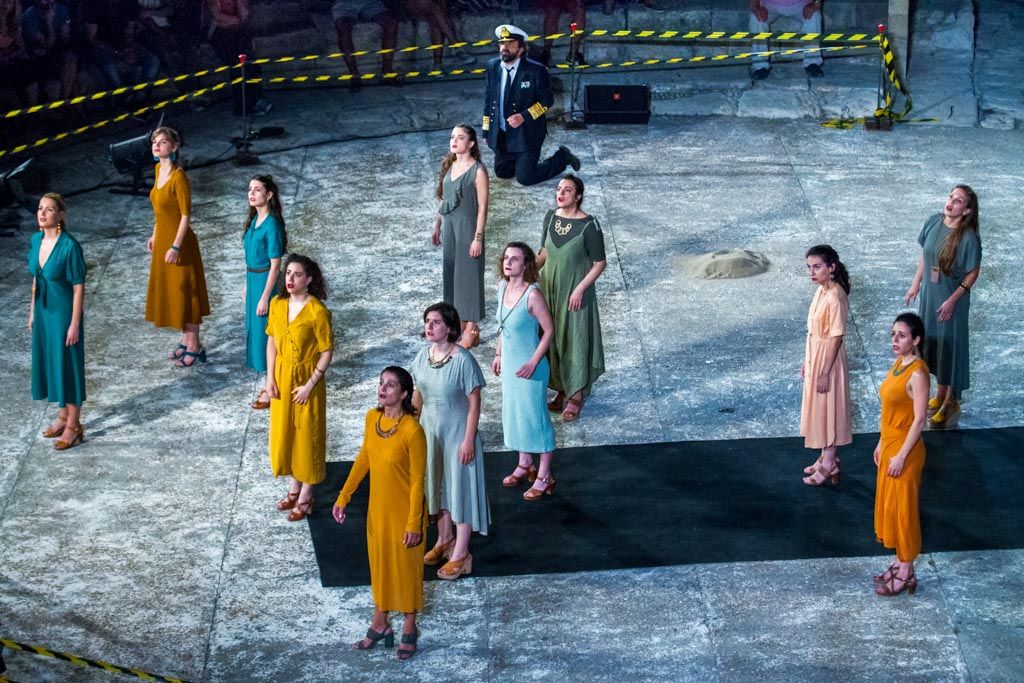ORESTES by Euripides
- Friday, July 20Curium Ancient Theatre
- Saturday, July 21Curium Ancient Theatre
- Performances start at:
21:00
Please arrive at Curium Ancient Theatre before 20:15
The National Theatre of Northern Greece presents Euripides’ tragedy, Orestes, in a new translation by the Greek poet Yorgos Blanas and directed by NTNG’s Artistic Director, Yannis Anastasakis.
After murdering his mother Clytemnestra, Orestes fades away in bed, tormented by the Furies, with his sister Electra by his side. When their uncle Menelaus, returns to Argos from Troy, accompanied by Helen, they hope that he will intervene and persuade the City to overturn the death sentence that has been passed on his nephew. However, neither Menelaus nor their grandfather Tyndareus wish to help him. Orestes then turns to Pylades, who is willing to risk his life to help his friend. The two young men, accompanied by Electra, plan to revenge themselves against Menelaus by killing Helen and her daughter Hermione, a plan that throws them deeper into a vicious circle of blood and violence. Trapped in their own actions, they desperately try to save themselves. The solution is ultimately provided by the intervention of Apollo, performing the role of “deus ex machina”.
- With English surtitles
- Translation:Yorgos Blanas
- Direction:
Yannis Anastasakis
- Set and Costume design:
Yannis Thavoris
- Music:
Babis Papadopoulos
- Music Instruction:
Nikos Voudouris
- Movement Direction:
Alexis Tsiamoglou
- Lighting Design:
Lefteris Pavlopoulos
- Assistant to the Director:
Samson Fytros
- Assistant Set Designer:
Elina Eftaxia
- Production Coordinator:
Marleen Verschuuren
Cast:
- Electra:
Ioanna Kolliopoulou
- Helen:
Dafni Lamprogianni
- Messenger:
Nikolas Maragkopoulos
- Pylades:
Dimitris Morfakidis
- Apollo:
Dimosthenis Papadopoulos
- Hermione:
Marianna Pouregka
- Tyndareus:
Kostas Santas
- Phrygian:
Christos Stergioglou
- Menelaus:
Christodoulos Stylianou
- Orestes:
Christos Stylianou
Eleutheria Agkelitsa,
Momo Vlachou,
Stellina Vogiatzi,
Anastasia Exintaveloni,
Pavlina Zachra,
Maria Konstanta,
Christina Papatriantafillou,
Maria Petevi,
Elina Rizou,
Evi Sarmi,
Christina Christodoulou,
Styliani Psaroudaki
Director’s note
Euripides wrote Orestes during an anti-heroic era and the context of his play reflects this state of mind.
Nowadays, we live in a period such as this ̶ and I am not only referring to Europe or the recent years of economic crisis.
Orestes premiers in a world where our values are shaken and the need for survival brings to light our mortal nature. The characters become coarser, the souls agitated and our thoughts blur. How can you be calm and what can you hold on to, when your blood boils and you find the End is nigh as you bound towards it.
Through our performance, we will try to determine the citizen’s place in a tumultuous nation, but also the place of a nation that punishes itself by punishing its people. And if there is something that sets us apart from Orestes’ Myth, it is that we all know that there is no “Deus ex machina”.
Yannis Anastasakis
National Theatre of Northern Greece
The National Theatre of Northern Greece (NTNG), which has been operating for 57 years, is currently the Greece’s largest theatrical and cultural organization. Comprised of 5 winter venues and 2 open-air theatres, and having organized national and international tours, it has been at the heart of Greek culture since 1961.
Every year, the NTNG puts on in-house productions and co-productions by other theatrical organizations, hosts national and international guest performances, and conducts tours, particularly during the summer months.
The NTNG’s Children’s and Youth Theatres stage high-quality performances for children and teenagers on an annual basis. The NTNG also offers educational programmes and workshops for primary and secondary school pupils. This year, the NTNG has launched performances for infants, as well as Workshops for disabled people and refugees.
The NTNG’s Drama School provides a complete course in drama and theatrical education and has been nurturing young actors since 1973.
As part of its educational policy, the NTNG promotes new playwrights and organizes playwright competitions, day-long tributes, lectures, seminars and exhibitions.
As part of its social policy, the NTNG organizes free events for vulnerable social groups (such as prisons, rehabilitation centres, hospitals etc.), corresponding to the needs of social groups and citizens who do not have access to the theatre for various reasons.
As a member of the Union of Theatres of Europe (www.union-theatres-europe.eu), the NTNG has a strong international presence; it participates at international festivals and collaborates with theatres all over the world.

